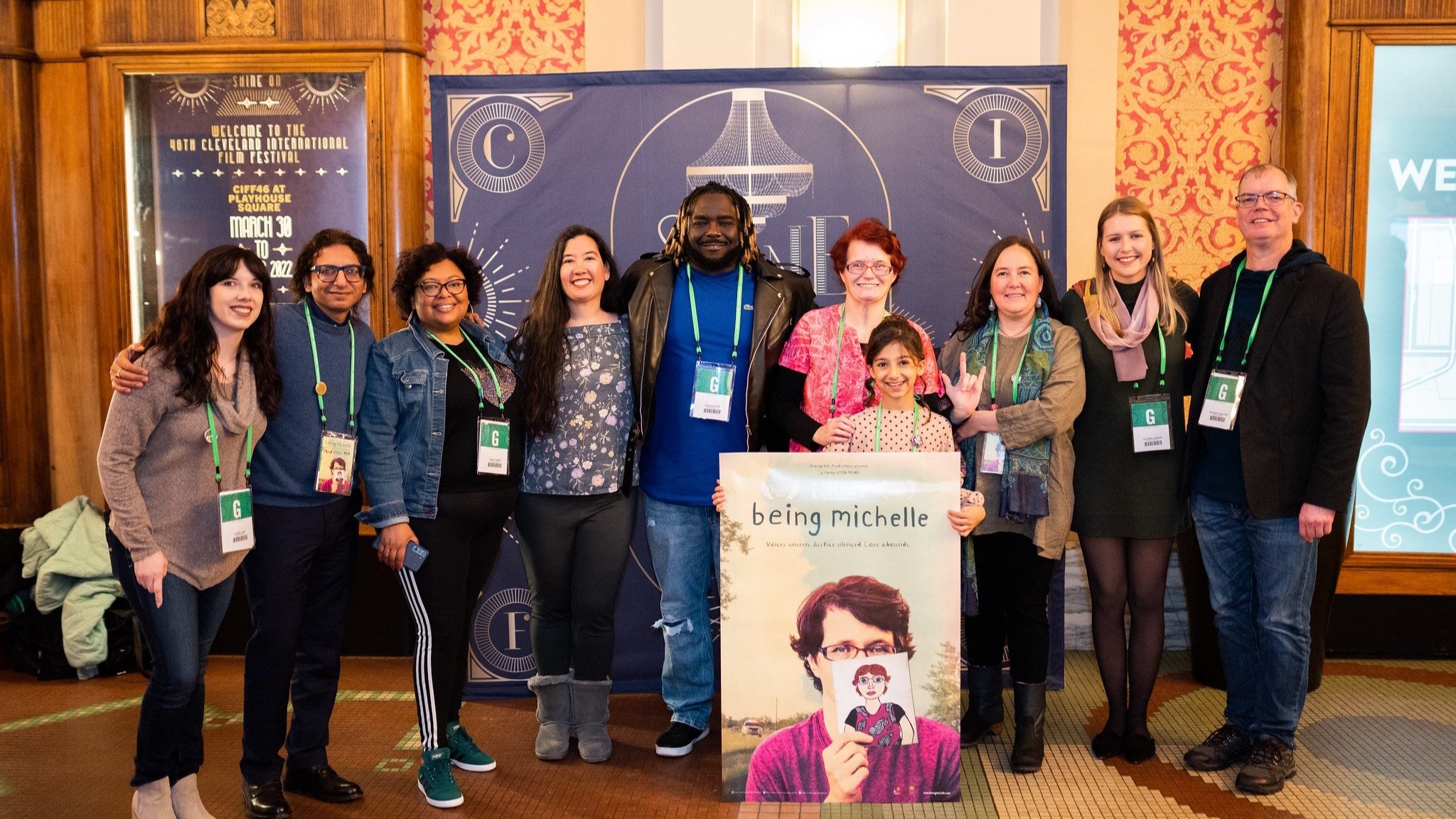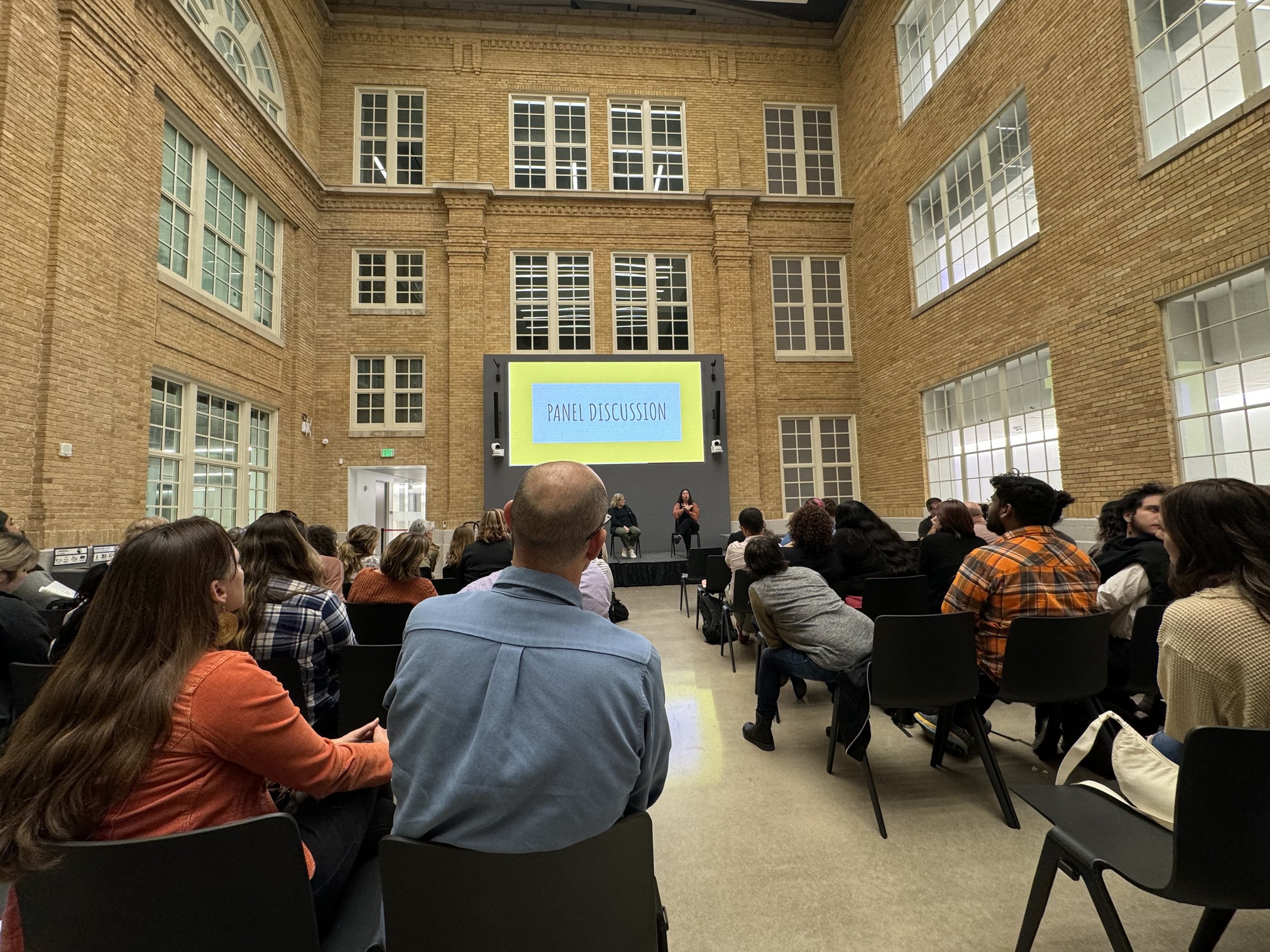
Frequently Asked Questions – Being Michelle Documentary
Being Michelle is an award-winning feature-length documentary about a Deaf woman with autism who survived incarceration and now uses art to tell her story and heal from trauma.
This FAQ section answers common questions about the film, its message, and how you can host a screening or bring it to your community. Whether you’re an educator, advocate, or festival organizer, you’ll find details here about accessibility, screening options, licensing, and filmmaker participation.
1. What is Being Michelle about?
Being Michelle is an award-winning feature documentary about a Deaf woman with autism who survived incarceration and abuse. Through her art, Michelle shares her journey of trauma, healing, and self-discovery, shining a light on disability rights and accessibility within the criminal justice system.
2. Who made the film?
Being Michelle was directed and produced by an experienced team of filmmakers dedicated to ethical, trauma-informed storytelling and authentic disability representation. The film has screened internationally and received recognition for its compassionate approach and social impact. (You can personalize this answer by adding your director, producers, or production company names.)
3. Who is Michelle?
Michelle is a Deaf artist with autism whose paintings and drawings vividly depict her life experiences—from childhood language deprivation to surviving incarceration. Her artwork is central to the film’s storytelling and symbolizes her resilience and healing through creativity.
4. How can I host a screening?
You can host a screening by completing our Screening Request Form. We offer options for universities, nonprofits, advocacy groups, film festivals, and community organizations—both in-person and virtual. Once your request is submitted, our team will contact you to discuss licensing, materials, and Q&A opportunities with the filmmakers.
5. Who can host a screening?
Screenings are open to:
Schools, colleges, and universities
Disability advocacy groups and nonprofits
Arts and cultural centers
Criminal-justice and social-work programs
Faith-based or community organizations
Film festivals and conferences
6. Are there different screening licenses?
Yes. We offer several licensing options depending on your audience size and type of event:
Educational License (for classrooms, libraries, and academic programs)
Community or Public Screening License (for nonprofits and public events)
Film Festival License (for official festival screenings)
Each license includes permission to show the film and, upon request, a discussion guide and digital promotional materials.
7. Can the filmmakers join for a Q&A or panel discussion?
Absolutely. Our team can join virtually—or occasionally in person—for post-screening discussions, panels, or workshops. Use the request form to indicate your interest in a filmmaker Q&A when booking your screening.
8. Is the film accessible to Deaf and hard-of-hearing audiences?
Yes. Being Michelle includes open captions throughout and can be presented with ASL interpretation or audio description upon request. Accessibility is a core part of our mission.
9. How long is the film?
The film runs approximately 80 minutes and can be paired with an optional post-screening discussion or Q&A session.
10. How can I support the film’s mission?
You can support Being Michelle by:
Hosting a screening in your community
Sharing the trailer and website on social media using #BeingMichelleFilm
Partnering with us for outreach or educational programming
Reaching out for collaboration opportunities through our Contact page
11. Where has the film been shown?
Being Michelle has screened at film festivals, universities, and advocacy events around the world and has been featured in news outlets and disability-rights platforms. (You can list key festivals, awards, or press mentions here.)
12. Is the film available for streaming?
The film is currently available for licensed screenings. Broader streaming release details will be announced soon—sign up for our newsletter or follow us on social media for updates.
13. Can I use the film in my classroom or training program?
Yes. Educators and facilitators often use Being Michelle in courses on disability studies, criminal justice, psychology, education, art therapy, and human rights. We can provide discussion guides and accessibility tools upon request.
14. How can journalists or reviewers contact the filmmakers?
You can also email us directly at mae@thrivingrootsinitiative.org







